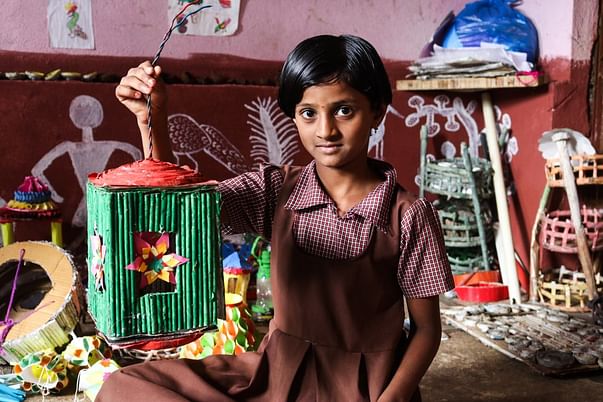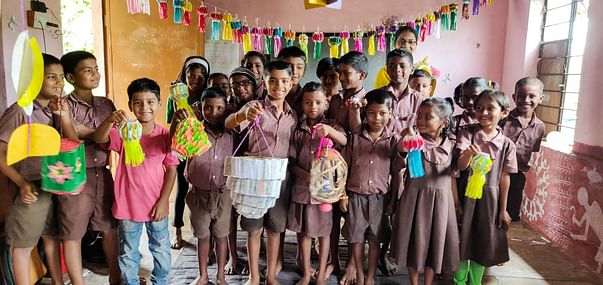Why you should support Rural Education?
- As per the National Family Health Survey 2019-2020, only 40.7 percent of women from rural Maharashtra between the ages of 15 and 49 had completed 10-plus years of schooling.
- The National Family Health Survey also points out that only 23.7 percent of women from rural Maharashtra had used the internet, while the number for men is double at 47.2 percent.
- An estimated 6.2 crore children between the age group of 6 and 18 were out of school in 2015, as per the 2019 National Education Policy report.
6 reasons you should support Insight Walk
- All our fellows/teachers are women from the same community/village. None of them have a college degree. All of them are school/college dropouts.
- Children in all our villages have the freedom to design their own syllabus.
- Our intervention is at the community level in the form of rural fellowship. Children from the mixed age group engage in hands-on learning.
- Children document and learn about their community extensively with more than 25 skills like painting, designing science experiments, soil science, botany, climate change, wildlife conservation, photography, organic farming, quilling, origami, miniature art, fabric dyeing, making organic colours, journalism, storytelling, poetry, pottery, writing books, cinematography, archiving, chalk carving, charcoal painting, hand embroidery, bamboo craft, reading and writing skills, etc.
- Most of their projects revolve around creating sustainable cycles and up-cycling trash. For example organic farming, organic colour making, organic fertilisers, making farming equipment using discarded materials, etc.
- Learning at our Community Centre is not just restricted to children. The majority of our projects focus on building a community mindset. So far our children have influenced dozens of farmers for cultivating organic turmeric.
Impact of COVID-19 and Lockdown on Our Communities - Our children come from families who are daily wage earners and agri labourers, meaning they do not own any farming land for themselves. Hence, they are the worst affected during any crisis, be it lockdown, incessant rains, or floods. During such times, they are forced to depend on external help.
- This year, due to the lockdown followed by incessant rainfall, community members lost their livelihood for more than 120 days. This meant no money for buying groceries, medicines, and education supplies. It was so horrid that a few parents even had to sell their cattle — something the agri labourers never resort to because cattle ensure a bare minimum income with the milk.
The goal is not just to distribute resources and supplies and fix the problem for the short term, but to address the issue at its roots and create a sustainable community-led solution that can be easily replicated, adapted, and implemented in the future during any crises.
How Our Students Are Creating The Impact
1. Supporting community with vegetables
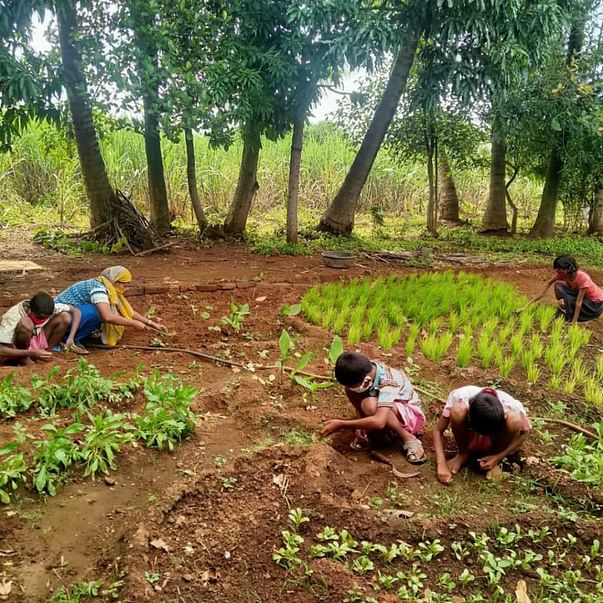
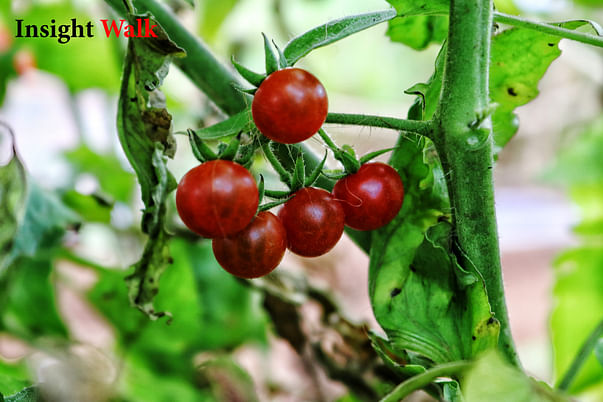
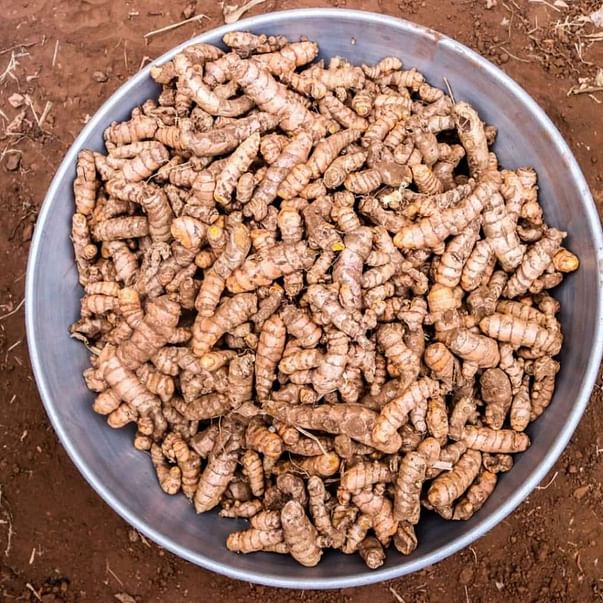
- When the families ran out of ration, our children distributed vegetables they had cultivated on their art farm. This includes spinach, fenugreek, tomato, brinjal, turmeric powder, green chilies, coriander, amaranth leaves, spring onion, lemon grass, dill leaves, etc.
- This was distributed especially to the elderly people and agri labourers which helped them sustain for at least 2 weeks.



2. Using their skills to support frontline workers, farmers, and community members
- When the Community Frontline Health Workers started surveying the households to contain the community transmission of coronavirus, they weren’t given adequate safety gear. During this time our students used their stitching skills to make face masks, hand gloves, and upcycled old plastic to make face shields for these community health workers.
- When people started wearing masks, lip-reading got difficult for the hearing impaired. Our kids came up with a solution: A transparent mask and gifted it to the people.
- Children also designed a contactless handwashing mechanism using trash and plastic bottles which have been installed at the entrance of the organic farm. After this, many people started replicating it and installed it at their respective houses.
- Children also made a portable washing machine to wash masks every day and a portable dryer to dry the masks.
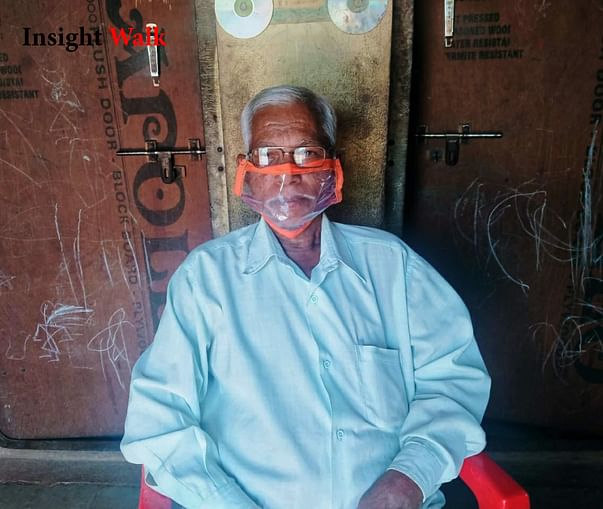
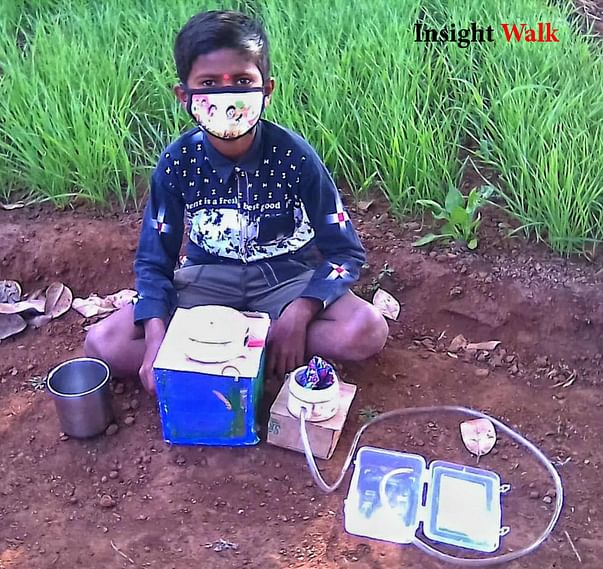
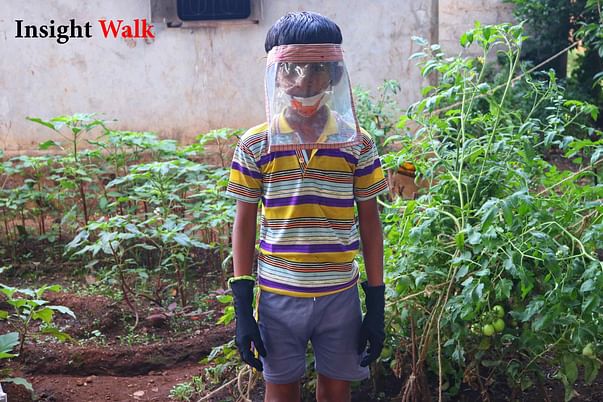
Read more about our work during the pandemic here
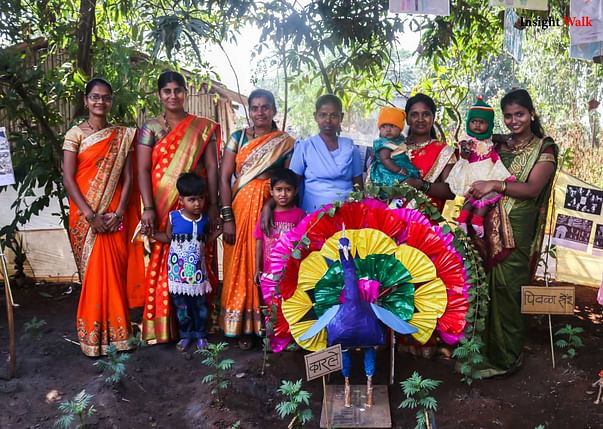
About Solidarity Art Farm Museum Project
What started as a mere organic farming project has now become a museum completely managed by kids from the age group 6-14.
It is a space where children learn journalism, community research, documentation, photography, organic farming, miniature art, innovate from trash, make organic colors from flowers and plants, use paintings, illustrations, block-printing, hand embroidery, poems, storytelling, etc to document their community and much more.
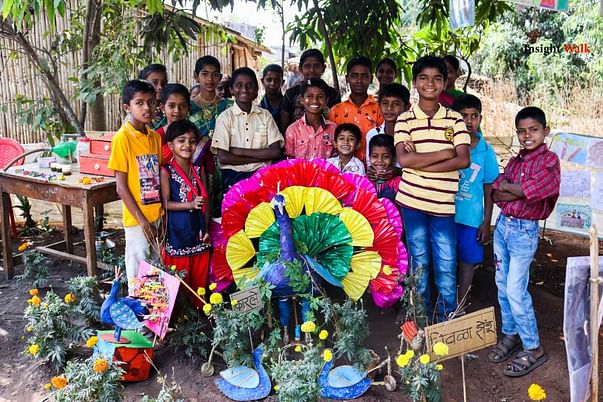
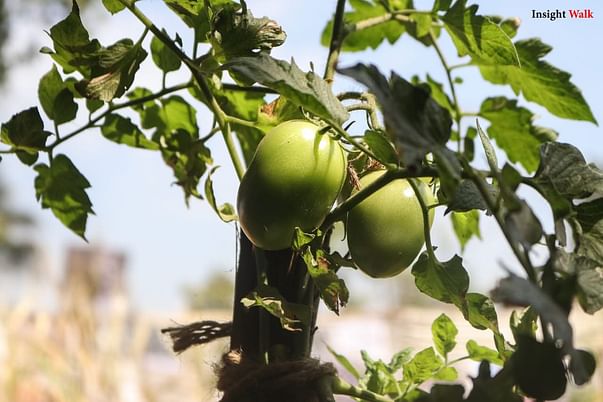
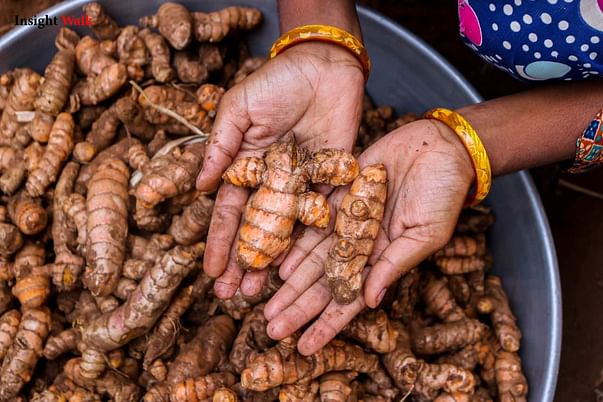
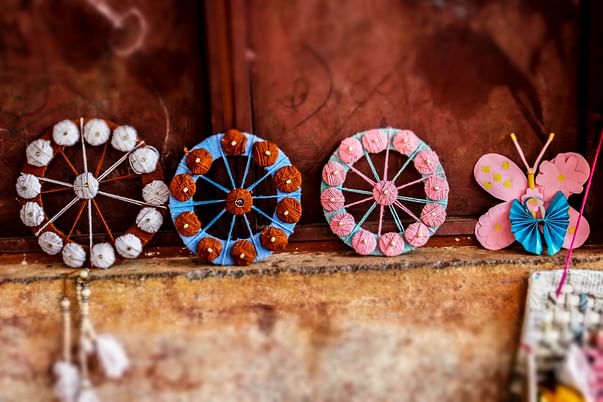
“The fact is that given the challenges we face, education doesn't need to be reformed -- it needs to be transformed. The key to this transformation is not to standardize education, but to personalize it, to build achievement on discovering the individual talents of each child, to put students in an environment where they want to learn and where they can naturally discover their true passions.”
― Ken Robinson
About Insight Walk
Insight Walk Education is a registered non-profit organization based out in rural Kolhapur, Maharashtra. We run an 18-month rural fellowship program for women fellows who work with 40-60 children from the respective village in an after-school intervention program. Our fellows are community women from the same village who go through rigorous training and receive continuous support during their fellowship.
― Ken Robinson
About Insight Walk
Insight Walk Education is a registered non-profit organization based out in rural Kolhapur, Maharashtra. We run an 18-month rural fellowship program for women fellows who work with 40-60 children from the respective village in an after-school intervention program. Our fellows are community women from the same village who go through rigorous training and receive continuous support during their fellowship.

About Solidarity Art Farm Museum Project
What started as a mere organic farming project has now become a museum completely managed by kids from the age group 6-14.
It is a space where children learn journalism, community research, documentation, photography, organic farming, miniature art, innovate from trash, make organic colors from flowers and plants, use paintings, illustrations, block-printing, hand embroidery, poems, storytelling, etc to document their community and much more.

Watch our work in action:
1. Charka from trash to display and document the process of cultivating organic turmeric
2. Several farmers from the nearby villages visited our museum and asked kids about how they managed to grow turmeric without any chemical fertilizers.
3. Kids from our arts lab at Golivane vasat in Bhendavade village of Kolhapur district converted their painting to a farm.
4. A robot that sketches circles for children.
5. Vacuum cleaner using trash
2. Several farmers from the nearby villages visited our museum and asked kids about how they managed to grow turmeric without any chemical fertilizers.
3. Kids from our arts lab at Golivane vasat in Bhendavade village of Kolhapur district converted their painting to a farm.
4. A robot that sketches circles for children.
5. Vacuum cleaner using trash
If you wish to know more about our journey please check here. To know more, please contact us at info@insightwalk.org and we will be happy to discuss further.
Note: Donations to Insight Walk benefit tax exemption.
Note: Donations to Insight Walk benefit tax exemption.



